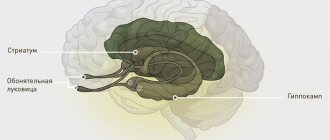Principles of Emotional Intelligence
Editorial
Promdevelop editorial team
Emotions play an important role in decision making.
Therefore, it is necessary to be able to manage both your own and others’ feelings in order to achieve your goals and plans. For this purpose, the term emotional intelligence .
What does emotional intelligence mean?
The term refers to a person’s ability to recognize the emotional component of other people. The concept also includes managing personal experiences. This influence is widely used to solve practical problems in business, work, and education.
EI is a fundamental element in assessing the environment. Helps to determine what people need, to know their strengths and weaknesses.
Models of emotional intelligence
There are 3 varieties that differ in their components.
Mayer-Salovey-Caruso Model of Abilities
It is considered the main one today.
Elements:
- perception of emotions: through gestures, facial expressions, voice, behavior, appearance, gait;
- understanding impressions: determining the reasons for their appearance, considering the connection between thoughts and emotions, complex feelings;
- emotionality as a stimulus for thinking: the ability to activate creativity as a motivation factor;
- management of experiences: their awakening, direction, taming, building logical chains.
Goleman mixed model
Based on it, three tests were created: ECI, ESCI, ESCI-U.
The concept is based on the following elements:
- Self-control - managing your feelings, adapting to changes in circumstances.
- Self-knowledge is the recognition of personal emotionality. Understanding how feelings influence behavior and thoughts.
- Sociality is the concept of sensitivity of other people and comfortable communication.
- Empathy is a pleasant influence that provides direction and inspiration, supporting good relationships.
- Motivation is knowledge of the goal, plan, clear adherence to them at every stage.
How to make employees work for results - A compromise between romance and digitization
Model Ruvena Bar-On
This socio-emotional model is distinguished by a large number of indicators.
These include:
- awareness: recognizing one’s experiences at a specific moment, distinguishing them and understanding them;
- independence: lack of moral dependence on other people;
- stress resistance: taming emotions and seeing a quick way out of difficult situations;
- flexibility: the ability to adjust emotions in changing circumstances;
- optimism: maintaining a positive attitude and hope for a successful resolution of problems;
- happiness: satisfaction with all aspects of life;
- empathy: understanding the feelings of others;
- self-esteem: the ability to rationally assess opportunities;
- self-expression: clarity in expressing feelings and thoughts, firmness of convictions;
- social responsibility: the ability to exercise care and control over others;
- interpersonal relationships: comfortable communication and social contacts;
- impulse control: managing temptations, overcoming them;
- assessment of reality: objective correlation of thoughts and feelings in the external world;
- problem solving: ability to identify potential solutions in an effective manner;
- self-actualization: realizing individual potential.
Methods for developing emotional intelligence
Considering that high emotional intelligence has a positive effect on quality of life, it needs to be developed. We'll tell you how to do this.
Observing emotions
Feelings cannot be ignored, they must be lived and analyzed. Learn to be aware of your emotions throughout the day. Why were you upset, why were you happy? For example, how they responded to criticism from management—resentment, grief, or rejection arose. Emotional reactions can be written down: “I am angry if...”, “I am delighted when...”.
Listen to your physical condition
The feelings we experience are necessarily reflected in the form of bodily signals. When we are scared, we unconsciously close our eyes; joy is felt as lightness and butterflies fluttering in our stomach. Stress and shock are immediately manifested by pressure in the stomach area. Identify your individual connections.
Identify connections between emotions and actions
It is necessary to understand how feelings influence behavioral responses. For example, if you feel ashamed, do you usually try to attack back? This reaction will not produce effective communication results, so it must be eliminated. The right thing to do is to calmly listen to your interlocutor and clarify your position if you need to admit that you are wrong.
Realize that there are no wrong emotions
Each of us has the right to anger, anger and rage. This is the psyche’s response to aggressive external challenges. But you should always pay attention to the circumstances that caused the negative. Did you envy someone? It's okay, but think about what the problem is, perhaps low self-esteem.
Choose worthy behavioral models
If certain emotions make you feel like you're losing, think about how you can change the situation. For example, in response to a remark, you start shouting and getting angry, which further provokes your opponent. If the opponent is calm in appearance, then consider that he will emerge victorious in the dispute. Don't let your feelings take over your reason.
Become open to dialogue with other people
Listen carefully to the person, try to understand his reasoning. At the same time, speak directly about your feelings and attitude towards the topic under discussion. Be accommodating.
Improve your ability to empathize
Put yourself in another person's shoes to feel their joy or pain. Don't be a passive listener. Sincerely try to help with a kind word or valuable advice. False sympathy is always visible from the outside; you cannot win real friends and supporters on its basis.
Make sure your words and facial expressions match
Don't be disingenuous; if you say, “I'm so glad to help you,” with a sad expression on your face, the insincerity will be visible. You have the right to openly express your emotions, you don’t want to help, and you don’t need to. It's better to tell the truth. Also watch other people’s facial expressions, learn to read between the lines.
The relationship between emotional intelligence and socio-psychological adaptation
A person is able to adapt not only through acquired knowledge, but also with the help of his own sensitive component.
When analyzing scientific works in the field of EI, it was concluded that it is defined as a set of emotional and cognitive abilities for the socio-psychological adaptation of the individual.
Social and psychological adaptation is considered from the point of view of internal and external criteria. Thus, people with different levels of EI differ greatly in the characteristics of socio-psychological adaptation.
Intrapersonal EI plays a dominant role in a person’s adaptive capabilities. Interpersonal interaction has less ability to quickly adapt.
People with a high level of EI are considered the most adapted. This is due to greater personal satisfaction, which gives confidence and purposefulness in life situations.
How to develop emotional intelligence
A high level of EI determines a person’s well-being in life. A clear and well-functioning connection between emotional and rational activities is the source of EI. If you do not belong to the group of people with a high level of it, then it is worth starting development.
Improvement should be aimed at increasing the level of its individual elements:
- Self-perception.
- Managing yourself.
- Social sensitivity.
- Relationship management.
With the harmonious work of each of them, a high level of EI as a whole will be ensured.
Development of self-management skills
Taking responsibility for your own emotions provides control in difficult situations.
Ways to develop a skill:
- Proper breathing: lack or excess of oxygen has a bad effect on brain activity. Try to take measured inhalations and exhalations. Avoid increasing or decreasing your pace even in stressful situations. Harmonious breathing gives confidence and calmness in subsequent actions, allowing you to quickly collect your thoughts.
- List of emotions and their explanations: it should consist of two columns - a call to action from each feeling, a rational definition. In a difficult situation, to avoid panic, use this technique to put your thoughts in order. The list allows you to decide which aspect of your personality is worth using at a certain moment.
- Counting to ten: in difficult situations, use the technique of counting as you exhale. This allows me to stop and collect myself at the right moment.
- Publicly declaring goals: is the best motivator for action.
- Put off making decisions: carefully digest the information in your head. The saying fits perfectly here: the morning is wiser than the evening.
- A clear daily routine in which there is room for problem solving.
- Attend seminars and coaching on emotion management.
- Keep a positive attitude.
- Improved sleep quality.
- Know the value of communicating with any person.
- Use a psychological reboot during the day: yoga, meditation, and walks in the fresh air are suitable for this.
- Realize the possibility and imminence of change.
The ability to feel good under pressure
"Problems come from our mouths." Chinese proverb
Many of us have experienced stress in our own lives. Depending on how we manage and respond to a stressful situation, we can remain positive and active or depressed and tired. When we are under pressure, the most important thing is to keep a positive mindset. Below are a few ways to do this:
- If you feel angry and irritated towards someone, before you respond with something you will regret, take a deep breath and count slowly to ten. By now you will understand how best to respond in this case. This way you can prevent a future problem. If after counting to 10 you are still irritated, move away from the problem if possible and resolve it when you are calm and able to think rationally.
- If you are anxious and nervous, wash your face with cold water and get some fresh air. Cold temperatures slow down the passage of nerve impulses, so you can reduce anxiety. Avoid caffeinated drinks, which make you nervous.
- If you feel scared or depressed, do intense aerobics. Charge yourself. The way we use our body affects our feelings. As they say, actions are dictated by emotions. As your body's physical abilities develop, your self-confidence will also increase.
- If you're feeling overwhelmed, overwhelmed, out of sorts, walk out the door and clear your mind. Go to nature and surround yourself with green and blue colors, which have a calming effect. Find a panoramic view and look at it from a distance. Take a walk. Take a deep breath. Don't think about anything. And come back with new perspectives.
Development of social sensitivity
Focusing on identifying and understanding other people's emotions has a great impact on all areas of life.
Tips for increasing social interaction:
- Greeting people by name: This helps remove barriers to communication.
- Timeliness: Keep in mind that the path to social sensitivity through timeliness is through focusing on others rather than on your own personality.
- Watch your body language: develop it with the help of appropriate books.
- Using prepared questions: allows you to quickly get out of a situation of awkward silence. Use an abrupt change of topic.
- Move aside your internal dialogue: It’s difficult to perceive your own thoughts at the same time as those of others. Distinguish between these concepts.
- Live in the present: be present in the current moment.
- Study EI using films as an example: consider any film as a guide to emotional communication.
- Observe people: consider their habits, signals, mood.
- Put yourself in someone else's shoes: this allows you to look at communication from a different point of view.
Development of relationship management skills
Any relationship requires constant effort to maintain it.
Tips for properly understanding relationships and their management:
- Open up to people and new things: In addition to your day job, be sure to focus on maintaining connections with other people.
- Use the words “thank you”, “sorry”, “please” more often.
- Use anger only in appropriate situations.
- Improve the quality of your individual communication style: evaluate your style using the ratings of your friends. Identify your strengths and weaknesses. Use the former more often and develop the latter.
- Build trusting relationships.
- Show you care.
- Avoid mixed signals: keep the meaning of your words in harmony with your body language.
- Learn to correctly perceive other people's nonverbal signals.
- Acknowledge and capture the emotions of others.
- When making decisions, explain them.
Emotional intelligence of a leader: how to develop and apply. Emotional Intelligence in Business
A person's leadership qualities directly depend on his emotional intelligence.
The manager must have:
- accurate perception and management of one’s own and others’ emotions;
- knowledge and understanding of the causes of experiences and impressions;
- using the emotional component to solve problems.
A manager’s emotional intelligence allows him to build long-term relationships, recruit and maintain a strong team, create a positive environment in the team, make clear decisions, and manage stressful situations.
The best and most successful leaders are those who fully possess the characteristics of high EI. This person knows emotions exactly, knows how to handle them and build a relationship with the thinking center.
The development of a leader’s EI is carried out both in general terms and in the leadership direction. Previously, increasing the level of EI for each person was discussed. In addition to these tips, the manager must also adhere to the following rules:
- Look at success in the long term.
- Inspire people.
- Persevere through all tests.
- Build only a strong team around yourself.
Using these skills allows you to improve the quality of interaction both within yourself and among the people around you.
You can read in more detail about the EI of a leader in the book of the same name by David Caruso and Peter Salovey.
Emotional intelligence and ways to develop it
“At the root of every strong emotion is a urge to action.
Managing this impulse is the essence of emotional intelligence.” Daniel Goleman writer, psychologist, science journalist (USA)
What is an emotion?
Emotion
(from the Latin
emoveo
- “shock”, “wave”) is a mental process of medium duration, reflecting a subjective evaluative attitude towards existing or possible situations and the objective world.
How does emotion arise?
- First comes the stimulus from the outside world.
- Then the processes responsible for emotion are launched in the subcortex of the brain.
Emotions are characterized by three components:
- An experienced or conscious sensation in the psyche of an emotion.
- Processes occurring in the nervous, endocrine, respiratory, digestive and other systems of the body.
- Observable expressive complexes of emotions, including on the face.
Emotions are distinguished from other types of emotional processes: affects, feelings and moods. Like many other mental phenomena, emotions are understood differently by different authors, so the above definition can be considered neither accurate nor generally accepted. Remember that emotions and feelings are not the same thing. Although many psychologists consider these phenomena to be the same.
| Emotions | Feelings |
| Emotions are short-lived. We react to a situation with emotions, for example, the battery of a cell phone runs out at the most inopportune moment, an emotion of anger or frustration arises. These emotions are short-term; when you arrive home, they will no longer be there. | Feelings are long-lasting and stable. Feelings are a long-term attitude towards someone or something; they establish a close emotional connection with a subject (object) that has motivational significance for a person. For example, when we think about a loved one, we can smile, experience some excitement, joy, and feel “warmth” inside. |
| A person is not always aware of emotions: why he experiences them and what specific emotions he is experiencing at the moment. When a person says: “Everything is boiling inside me,” what does this mean? What emotions? Anger? Fear? Despair? Anxiety? Annoyance? | A person is almost always aware of feelings: friendship, love, envy, hostility, happiness, pride. |
| Emotions manifest themselves externally and are difficult to control and hide. For example, a dog unexpectedly frightened you, the fear that overcame you at these moments will appear on your face sharply and unconsciously, and it will be clear to you that it was at that moment that you experienced the emotion of fear. | Feelings, as a rule, manifest themselves internally, they do not disappear anywhere and may simply not appear for a long time. |
Theory of Basic Emotions
Basic emotions
are elementary emotions that are no longer split into anything, and are themselves components of other complex emotions.
Izard Carroll is an American psychologist. Specialist in human emotions. Author of the differential theory of emotions. In the analysis of emotions, he identified three levels:
- Neurophysiological
- Expressive
- Subjective
Carroll described such fundamental emotions as interest, pleasure, surprise, disgust, anger, contempt, grief, shame, guilt, fear.
Paul Ekman is an American psychologist, professor at the University of California, San Francisco, and an expert in the fields of emotion, interpersonal communication, psychology, and “lie detection.” Identified basic emotions: happiness, sadness, disgust, surprise, anger, fear.
The theory of emotions, which emerged in 2014, is very simple, it describes only 4 emotions. When several people saw portraits of other people's facial expressions, they were given 6 basic emotions. The experiment revealed that many people do not see the differences between some emotions. Of the six emotions presented, four were read best:
- joy
- sadness
- fear
- anger
Based on four basic emotions, you can develop others; these will be some kind of add-ons.
Daniel Goleman: Emotional Intelligence. Why it may matter more than IQ
American psychologist Daniel Goleman argues that our emotions play a much larger role in achieving success at home and at work than is commonly believed. But what is “emotional intelligence”? Can it be measured? What is the difference between “ordinary” intelligence and “emotional” intelligence?
Buy
What is emotional intelligence?
Emotional intelligence
, or
EQ
(English
emotional intelligence
) is the sum of a person’s skills and abilities to recognize emotions, understand the intentions, motivations and desires of other people and their own, as well as the ability to manage their emotions and the emotions of other people in order to solve practical problems.
Emotional intellect
is one of the most popular concepts of the last decade. Experts from the World Economic Forum included it in the top 10 most important skills in 2021. On the Amazon.com website, for the query “emotional intelligence” you can find more than 6,000 links (for comparison, Ozon.ru provided only 138 products on the topic of “emotional intelligence” in March 2018). So it can be assumed that in Russia the topic is still only at the beginning of its development.
If emotional intelligence is not developed, it is very difficult for a person to recognize his emotions and read the state of other people.
Short story
In 1990, researchers John (Jack) Mayer and Peter Salovey published a short paper in a scientific journal called “Emotional Intelligence.”
In it, they described their idea of what “emotional intelligence” is, substantiated why, in their opinion, we are talking about intelligence, and outlined the difference between social and emotional intelligence. In 1995, New York Times journalist Daniel Goleman released his famous best-selling book, Emotional Intelligence. It stayed on the New York Times bestseller list for more than a year and a half. Daniel Goleman is often called the author of the concept of “emotional intelligence,” but this is not entirely correct.
When the concept of emotional intelligence gained wide popularity, the Israeli psychologist Ruven Bar-On also decided to compete for the primacy of the topic. Legend has it that “in the first copy of his doctoral dissertation, which was submitted in 1985, Bar-On proposed a quantitative approach to creating an “EQ analogous to an IQ score.” However, people who saw that very first copy claim that there is no talk of anything like that. One way or another, little-known in Russia, Bar-On is one of the most authoritative experts in the field of emotional intelligence in the world.
Mayer-Salovey model
Model Ruvena Bar-On
Goleman model
All models have something in common with each other and contain basically the same components, but each of the psychologists brought something of their own.
What's good about emotional intelligence? To whom is it important?
EQ is based on four factors:
- Self-awareness
- Self-control
- Empathy
- Relationship management
A good leader will effectively cope with his responsibilities when his emotional intelligence reaches 85%.
The Importance of Emotional Intelligence Quotient
A person with high emotional intelligence:
- understands his emotions;
- knows what role feelings and emotions play in communicating with people;
- knows how to express his emotions in such a way as to establish and maintain friendly relationships with others;
- strives to learn and enrich his inner world;
- knows how to regulate their emotions;
- knows how to manage internal motivation and maintain the mindset to achieve goals.
A person with low EQ:
- conflicted;
- irritable;
- indecisive;
- strives to keep everything under control;
- subject to strong feelings of anger.
“It is very important to understand that emotional intelligence is not the opposite of intelligence, it is not the triumph of the heart over the head - it is the only way the two intersect.”
David R. Caruso is a psychologist, professor of psychology at Yale University (USA), management specialist and co-author of the concept of emotional intelligence.
There are no bad and good emotions. We need all emotions. Even fear, sadness and anger.
Phases of managing emotions:
- Identification. Emotion recognition.
- Understanding the cause of the emotion. What was its launch?
- Intelligence will help you direct your emotion for your own good and make it useful.
- Direct actions aimed at making the emotion useful. Using the Rules of the World - everything in the world should be useful. Since emotion is a resource, you need to use this resource.
When and who needs to develop emotional intelligence?
- When you realize that you are stuck in one emotion.
- When you step on the same rake, you constantly make the same mistake.
- When you are stuck in a certain cycle and do not move towards success, do not develop, and stagnate.
- When other people's lives are much more interesting than your life.
Sergey Shabanov, Alena Aleshina: Emotional intelligence. Russian practice
The concept of emotional intelligence came into use recently, in 1990, but during this time it has become an integral part of Western psychology. The book shows how to apply accumulated knowledge to Russian reality. We often talk about the mysterious Russian soul. Perhaps it is emotional intelligence that guides us more than IQ?
Buy
How to develop emotional intelligence?
Step one
The first and most important thing is to develop the skill of awareness of your emotions.
Despite the fact that this skill usually looks the least interesting, it is hardly possible to control anything without being aware of your actions. That is why, first of all, it is important to learn to understand at each moment of time (if necessary) what I am feeling now, that is, what emotion I am experiencing. This is not so easy to do, since there are a number of objective difficulties. For training, it is advisable to start tracking your emotional state every day at a certain time; for this, you can set reminders on your phone with the question “How are you feeling?” or keep a diary of emotions in which you will write down the results of your work every day. Throughout the day, track what emotions you experience, what caused these emotions, track the general background of your mood.
At the time you choose, record the facts: what are the strongest emotions you remember today, at what moments they arose. Write down what sensations arose in your body while experiencing these emotions, what thoughts came to you at that moment? Any emotion is a release of a certain hormone. Therefore, it is important to track where sensations originate in the body.
Record your observations in free form or in a table:
| Fact (situation, person) | Thoughts | Physical sensations | Emotions |
Step two
Improving skills in understanding other people's emotions. To do this, you can pay attention to the nonverbal behavior of another person and develop empathy skills. If communication occurs with a loved one, you can check the correctness of your guesses by asking: “How are you feeling?” or making the assumption: “I think you’re upset about something right now.”
Practice “Mute TV”
Turn on some feature film that you haven’t watched yet and turn off the sound.
Watch a movie for some time, observing the characters’ gestures, facial expressions, location in space and thinking about what emotions they are experiencing now. This is a very exciting process. If you don't really like watching feature films this way, watch some TV debates or news. Watch a fragment of a familiar film and a fragment of an unfamiliar one with the sound turned off. What is the difference in the observation process? Does knowing the plot hinder or help you compare “nonverbalities” with emotions? Compare films of different genres. What are the similarities and differences between nonverbal behavior across cultures? Watch a movie with famous actors and some cheap TV series. Compare the nonverbal expressions of actors with real people in some reporting program.
Practice “Public Transport”
This game has an additional bonus. To watch silent television, you must have time, a television or computer, and the consent of relatives to use it. And when you are on public transport, you have free time, which can be occupied with useful activities. Therefore, when you are tired of the newspaper you bought for a trip on the subway, or the book you took on the train or plane runs out, you can switch to this game. How do these people feel? If you see a couple, what kind of relationship are they in? If someone tells someone something, is the story funny or sad?
Step three
Managing your emotions.
Important! Do not confuse managing emotions and controlling them, suppressing them. Often the only way of managing that we master perfectly is to suppress our emotions. However, emotions cannot be suppressed forever; they will either break through in another situation (which is called “accumulated”), or will manifest themselves against a psychosomatic background (for example, a headache will begin). Young children are often told: “Boys don’t cry,” “Good girls don’t do that,” etc. Therefore, many of us are accustomed to suppressing our emotions in order to fit into society. There are other ways to manage your emotions. We know many of them: breathe, walk, do some physical activity. One of the effective ways to manage your emotions is verbalization - describing your state out loud: “I’m a little worried, anxious, feeling slightly irritated,” etc. You can not only change the intensity of a negative emotion, but also replace it with another, more positive one.
Practice “Body Methods”
Choose a body-based method for managing emotions that can be used in almost any situation. For example, imperceptibly clench and unclench your fists. Stand on your tiptoes several times. Get up, walk a little and sit down again. Practice using it at least once an hour.
Practice "Problems"
Write a list of problems that are relevant to you.
Remember the maximum number of problems (note: at first some difficulties may arise, and then the process will begin - we know how to look for problems). Now reframe these problems into goals. Make sure to formulate goals positively, that is, without using the particle “not”, as well as the words “quit”, “stop”, “stop”. Formulate your goals as specifically as possible, and be sure to determine the time frame by which you plan to achieve them. Notice how your emotional state has changed compared to when you started.
Step four
Managing other people's emotions. This includes a whole range of skills associated with the ability to calm another person if he is very angry, afraid or upset, as well as the ability, on the contrary, to “infect” other people with positive emotions.
Practice “Emotional motivators in my company”
Think about it and write down what you can do to maintain a constant atmosphere of drive, excitement and enthusiasm in your company.
Practice “Emotional Balance”
Choose some personal or business relationships that are meaningful to you.
For personal relationships, it is enough to remember a period from several days to a week; for business relationships, it is better to take a longer period - one or two months. Divide the sheet in half with a vertical line, mark the left column as “+”, and the right column as “-”. Write down in the left column all your actions that, in your opinion, improved the state of your account (those actions that improved your partner’s mood), in the right column - those that worsened it. See how you have impacted your emotional balance in this relationship over this period. Have you managed to improve it or at least maintain it at the same level? Or is the number of actions in the right column becoming depressingly prevalent?
If you're one of those people who only has a bunch of great actions in the left column, ask yourself if you're throwing the balance off balance there, too. Are you giving too much to your partners and asking too little in return?
In both cases, it is worth drawing up an action plan that will help you maintain balance in a more or less equilibrium state. It is useful to carry out such an analysis for yourself at least once a month for the most significant figures and “accounts” and once every few months for people important to you.
Bonus tip
Be sure to watch the cartoon “Puzzle” if you haven’t seen it yet. Get a lot of impressions and learn how emotions arise.
Books and films about emotional intelligence
To develop personal EI, you should turn to the most effective books.
These include:
- “Emotional Intelligence” by D. Goleman;
- “Taming the Amygdala” by D. Arden;
- “The Power of Empathy” D. Ebenstein;
- “Emotional intelligence of a leader” by D. Caruso, P. Salovey;
- “Emotional intelligence in negotiations” R. Fisher;
- “Emotional Leadership” D. Goleman, R. Boyatzis, E. McKee.
To increase the level of EI, you can use not only literature, but also cinematography. Effective and useful films include:
- The Truman Show 1998;
- Shawshank Redemption 1994;
- Life is Beautiful 1997;
- The Pursuit of Happiness 2006;
- Planet Ka-Pax 2001;
- Bicentennial Man 1999.
EQ level test: how to determine your emotional quotient
Last week we talked about the skills of children and adults to recognize and manage their emotions; we have outlined how much emotional intelligence prevails over mental intelligence in the modern world; revealed what it means and how it helps to socialize successfully. Today, in continuation of the topic of emotional intelligence, we offer several test options by which you can thoroughly familiarize yourself with this integral concept in our lives and try to determine your coefficient of emotional development.
IQ (intelligence quotient) is losing its position as the sole leader in determining success. It is replaced by EQ (emotional quotient). This does not mean at all that it becomes decisive. Not at all. A favorable combination of reason and emotion is important.
Emotions come first!
"If Dumb, Dumber" has a high emotional quotient, he would be a good comedian at best. And at worst - a banal neurasthenic. The brain of each of us is divided into two halves: logical (left hemisphere) and emotional (right hemisphere). All information received from the outside first passes through the emotional representation of our brain and only then enters its logical part. The norms accepted in society and the environment encourage us to hide our emotions in front of people and not show them. And, hidden deep inside, they don’t go away.
What your emotional status is depends on your emotional development. Emotional development, starting from childhood, does not stop in adulthood. It is indispensable in the ability to establish relationships with others and is very important in achieving success and finding happiness in your personal life. Of course, happiness and success have many components - this is both natural intelligence and a successful coincidence of circumstances. But the emotional quotient, like nothing else, helps to understand why some people who were not particularly successful at school and did not shine in college subsequently achieve great heights in their field of activity.
Emotions hidden deep inside do not go away. In children, unreacted emotions are transformed into fear and uncertainty. In adults, suppression of feelings and emotions leads to the release of adrenaline and norepinephrine, which, in turn, lead to various kinds of psychosomatic diseases, primarily hypertension (also called the disease of unexpressed emotions).
What's the secret
What is hidden behind this coefficient? This is, first of all, determination and perseverance, the ability to curb your desires in order to achieve a goal, control of your emotions and mood, the ability to sympathize with others and hope for the best. But for most people, the task of managing one's own emotions is quite difficult, primarily because our culture focuses primarily on the development of intelligence, and such human qualities as empathy, self-awareness and control over one's feelings are ignored. Therefore, everyone must take care of their own emotional development, learn to express emotions within the framework of accepted norms in society and try not to ram them unreacted into the hidden corners of the subconscious, so that they do not carry out their destructive work there.
Magnificent Eight
The true values and traits that are welcomed in society today are these eight qualities: friendliness, sincerity, empathy, intuition, gentleness, sympathy, mutual understanding, trust. All of these are also components of emotional intelligence. "Emotional competence" refers to the ability to recognize one's own feelings and the feelings of others, for the purpose of self-motivation, as well as for the purpose of managing one's internal emotions and emotions in relationships with other people. Emotional competence describes abilities that are distinct from intellectual IQ, but complement those purely cognitive abilities. Many people who are book smart but lack emotional intelligence end up being supervised by people who have lower IQs but excel in developing their emotional intelligence.
There are at least seven factors that determine the degree of emotional development:
- the ability to understand oneself;
- the ability to manage your emotions;
- determination;
- sincerity;
- truthfulness of feelings;
- the ability to sympathize;
- the ability to help people improve relationships with each other.
Of course, EQ diagnostics is not a panacea for all personal “troubles,” but prompt diagnosis of the coefficient of emotional development really allows an individual to avoid many disharmonious situations, both in current life activities and in the sociocommunicative sphere.
Your EQ Level
To determine your emotional quotient, we offer the following three test methods:
Test 1
Answer “yes” or “no” to the questions below:
- When people are busy with their own business, I do not turn to them for help, because I am sure that it is useless.
- Having learned that one of my old acquaintances came for a short while from another city, I, despite my workload, will find time and meet with him.
- As a rule, I determine whether a person is in a good or bad mood by one look.
- Reading crime columns in newspapers or watching television news can unsettle me for a long time.
- I am in a good mood more often than in a bad one.
- When talking with my superiors, I get lost and only think about how to end the conversation as soon as possible.
- I never knew how to skate, but I think if I wanted to, I would learn.
- I feel great with my friends.
- Before I take on any business, I first make a plan, think about where I will start.
- A car, TV, or refrigerator breakdown can make me feel confused and even desperate.
Sum up: if you answered positively to points 2, 3, 4, 5, 7, 8, 9, then you can be congratulated: your emotional development coefficient is quite high. If you answered positively to points 1, 6, 10, then this is somewhat sadder, and you should think about your emotional development, and maybe even reconsider your views on life.
Test 2
Choose answer A or B, whichever best suits your temperament. This will help you better understand how developed your emotional intelligence is.
1. You forgot to wish your work colleague a happy birthday.
A. I never remember birthdays at all.
B. I was busy with other things
2. The library demands money from you for a book that you did not return.
A. When I am engrossed in reading a book, I forget that I need to return it.
B. I was so engrossed in writing the report that I forgot to return the book on time.
3. You lose patience with one of your friends.
A. She always complains about life
B. She is aggressive
4. You feel exhausted
A. I never manage to find time to rest.
B. This week has been particularly busy.
5. One friend says something to you that hurts you.
A. She always speaks without thinking.
B. She was in a bad mood, that’s why she attacked me
6. You fall on the ski track
A. Skiing is generally difficult
B. The ski track was just slippery
7. You gained weight while on vacation and can’t seem to lose it.
A. Diets are of no use
B. The diet I tried is not effective.
Processing the results. The more A's you score, the lower your EQ and therefore the less likely you are to succeed. And, conversely, the more B, the higher the coefficient.
Test 3
Testing your parental emotional intelligence may be interesting. The “Character of the Child” questionnaire, intended for parents of older schoolchildren and developed by E.A., seems to be very interesting and quite simple in practical use. Berdichevskaya, teacher-researcher from municipal secondary school No. 409 in St. Petersburg.
QUESTIONNAIRE “CHARACTER OF A CHILD” (for parents of older schoolchildren)
- Is it easy to make your child laugh?
- Is he often capricious (disobedient)?
- Does he behave calmly at home, without driving everyone at home (including pets - cats, dogs and others) out of patience?
- Does he have friends with whom he willingly communicates and plays?
- Does your child often “lose his temper”?
- Do you always need to keep an eye on him?
- Does he have a habit of fantasizing a lot?
- Does he behave well with his peers, and does he need special supervision (control) on your part?
- Does your child have any minor fears (phobias)? (Tick which ones).
Decoding of questionnaire results. If you can give positive answers to questions 1, 3, 4, 8 and negative answers to questions 2, 5, 6, 7, 9, then you are raising your child well, and he is well adjusted to life.
In conclusion, emotional intelligence and its definition are complex. It is impossible to calculate it, since they are calculating the IQ for now. Emotional coefficient – assessment of trends, development prospects. In addition, EQ is a variable value, that is, it is not a fixed and unchanged value from the moment of birth. The correctness of emotional life and the release of emotions will serve well in the development of emotional intelligence.
Anna Savon, Rodina newspaper
Tags: developmenttestsemotionsemotional intelligence
Interesting facts about emotional intelligence
- In the absence of proper control over what is happening, the human brain is capable of finding non-existent patterns, looking for connections between pictures that do not correlate with each other, and even believing in conspiracy theories.
- There is a certain connection between a person’s emotional state and clothing. Thus, women who are in a depressed mood prefer baggy clothes and jeans. With a positive attitude, they choose beautiful dresses, jewelry and look more elegant.
- Emotions are contagious. This way, negative emotions have a greater impact on others and can be adopted by them. Neutral and positive ones are significantly inferior to them in this sense.
Emotional intelligence plays a significant role in all areas of a person. Increasing its level contributes to personal well-being and satisfaction. To improve EI skills, you need to constantly improve yourself with the help of books, films, live communication and observation of others.
EQ Levels
There are several ways to measure emotional intelligence quotient. Let's focus on the most common scheme.
A low level of emotional intelligence is assigned to people based on the following criteria:
- low self-esteem;
- depression by one’s own emotional state;
- Depressive states are common;
- low level of self-control and awareness of one’s own emotional state;
- weak influence and control of the situation (events influence the person, not he influences them);
- inability or low ability to recognize the emotions and feelings of others;
- stubbornness in any situation;
- strong emotional reactions (rudeness, insults);
- tendency to conflict situations.
The average level of emotional intelligence is characterized by the following indicators:
- a clear sign is a positive assessment of one’s own position in society;
- high self-esteem and level of self-control in terms of emotional state;
- ease of communication with people without any volitional effort.
An average level of emotional intelligence indicates a person as a successful careerist.
High emotional intelligence is assessed by a number of the following qualities, which were named by surveyed US multimillionaires:
- complete harmony with the surrounding world;
- an individually developed system of values that actually does not harm others;
- skills of changing opinions if they turn out to be erroneous, and admitting one’s mistakes;
- resistance to stress;
- the desire to develop and help others in this;
- lack of fear of taking responsibility for your team;
- honesty with people.










